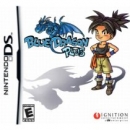Computerworld - A home electronics retail store has filed a class-action lawsuit against Sony Corp., Samsung Electronics Co. Ltd., Toshiba Corp., LG Electronics Inc., Hitachi Ltd. and several subsidiaries, accusing the electronics manufacturers of colluding to fix prices in the U.S. optical disc drive (ODD) market.
The lawsuit, filed Wednesday, also claims the disc drive manufacturers used trade organization forums to meet and discuss agreements to keep prices of CD, DVD and Blu-ray drives in products like the Sony PlayStation 3 and PCs artificially high.
"When the price of ODD began to dip, the Defendants entered into an illegal agreement to prevent competitors from entering into the market and to keep prices at a supracompetitive level," the lawsuit states.
Prisco Electric Co. Inc. filed its 31-page complaint in the U.S. District Court for the Northern District of California. In it, Prisco calls the companies co-conspirators in attempts to "fix, raise, maintain and stabilize the price of Optical Disk Drive Products sold in the United States."
"The Defendants and their co-conspirators in this case control over 90% of this multibillion dollar a year market," the lawsuit states. "These Defendants have a long history of engaging in anticompetitive conduct, such as Dyanmic Random Access Memory (DRAM), Thin Film Transistor Liquid Crystal Display (TFT-LCD) and Cathode Ray Tube (CRT)."
Prisco did not specify an amount it is seeking, but the store did say it wants triple damages and an injunction against the companies to stop future price fixing activities.
Samsung, which has received subpoenas from the DOJ, said it had "no comment regarding price fixing on optical drives." Officials at Hitachi and Toshiba could not be reached for comment. According to a report in the Wall Street Journal last fall, Hitachi and Toshiba also received subpoenas regarding the probe into ODD price fixing.
An investigation was launched last October by the U.S. Department of Justice (DOJ) into the market for optical disk drives for anticompetitive conduct. The DOJ subpoenaed Sony Optiarc America, which at the time said it intended to cooperate fully with the DOJ and other agencies in this inquiry."
According to one published report, the investigations goes well beyond just Sony, and involves other electronics manufacturers.
In its complaint, Prisco, a retailer located in East Haven, Conn., said that the conspiracy to fix prices began at least as early as Oct. 1, 2005 and is continuing.
Rick Saveri, a partner in the San Francisco law firm of Saveri & Saveri, which is representing Prisco, said price fixing "cartels" are common in Asia and that it has become a cyclical practice to keep new technology prices high until older technologies can be phased out.
Saveri & Saveri is also lead counsel in several other price fixing lawsuits against Samsung and other electronics manufacturers involving DRAM, SRAM, flash memory and LCD displays.
"These are big Asian smoke-stack industries where they're investing in big fabrication plants. You can't have a technology destroy the business," Saveri said. "If you fire up a big fab plant with CRT tubes, and the next generation technology destroys it, then you have a big fab plant manufacturing buggy whips.
"So they have to make sure the price points for these [newer] technologies ... don't destroy existing markets," he added. "Price fixing always occurs when there's pressure on markets and prices are falling. You've got to prevent the falling market."
Savari said one civil litigation investigation case led to another as witnesses came forward. So the DRAM litigation lead to the SRAM litigation, which opened up into the flash memory litigation, "which we're the lead counsel on," he said.
Saveri said five or six other smaller retail stores have filed similar lawsuits over optical drive technology; he expects the number of plaintiffs in the case to grow.
"It's so predictable how these new technologies always roll out on a six-month window. You can almost set your clock to it. It's the way they operate," Savari said.
The suit includes Sony Optiarc America Inc., Sony NEC Optiarc Inc., Hitachi-LG Data Storage and Toshiba Samsung Storage Technology Corp.

































































